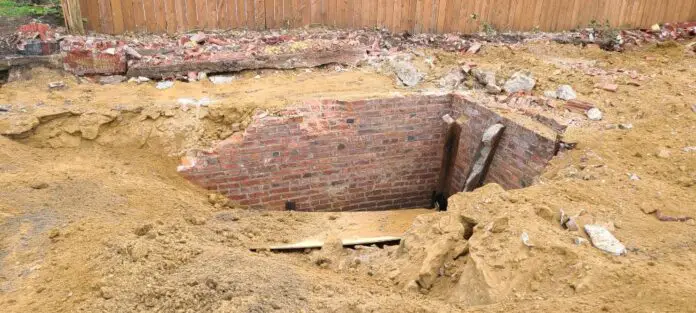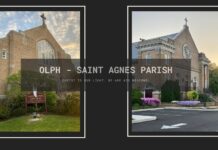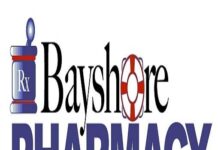The borough of Atlantic Highlands has issued a stop work order for the property at 48 Ave C where an underground tunnel was uncovered earlier this week.
At Wednesday’s meeting of the Borough Council, administrator Robert Ferragina announced that elected officials and borough professionals including the borough engineer and attorney have met and a temporary stop order issued while the borough conducts a GPR, a ground penetrating radar procedure to learn more about any possible structures in the right of way area.
Borough engineer Doug Rohmeyer explained the GPR sends signals below the surface, getting responses that provide engineers with more information and said the work is being done an abundance of caution.
Contrary to what was believed, Rohmeyer said, the hole created by the construction equipment as part of the initial work prior to new construction on the site has not been backfilled. The contractor did build up a dirt wall around the opening and covering it with plywood, both for safety and weather situations.
It is estimated the GPR could be conducted sometime next week and the governing body would wait until it is completed before deciding any further action.
The property owner of the former Fireman’s Fieldhouse on Ave C, received a variance from the Planning Board several months ago, granting the owner permission to construct three houses on the vacant lot, where the ordinance currently would only have allowed for the construction of two houses.
The tunnel that was exposed as part of the construction work is at one side of the property close to Ave C and extends eastward under the property of the residence at the intersection of Ave C and W. Highlands Ave.
There was considerable speculation among numerous residents who gathered at the site Monday evening that the tunnel is a remnant of the Prohibition era between 1920 and 1934 when the borough was known to have had considerable activity among rum runners and bootleggers, with underground tunnels and rooms used for transporting illegal liquor .
There have also been underground still rooms where illegal alcohol was made uncovered or discovered in the bayshore area dating to Prohibition..
During the public portion of the meeting Jack Grodeska, who indicated he has done considerable professional archeological work internationally, addressed the governing body.
He explained he was representing the Atlantic Highlands Historical Society and had spoken with a leading archeologist at Monmouth University, and both are donating their time to do an archeological assessment of the property.
He indicated the Historical Society would appreciate being able to have artifacts from the site for display at the Strauss House Museum as an indication of some of the unique history of the borough. Grodeska noted the find is a major piece of history for the borough. Council took no action other than to thank him for his report.
Tucker Snedeker, who lives near the site where the tunnel was uncovered, also described it as a historic find and commended both the Mayor and Council and the Police Department for taking action in a “tricky situation” and praised the good job they did at an unexpected event.



